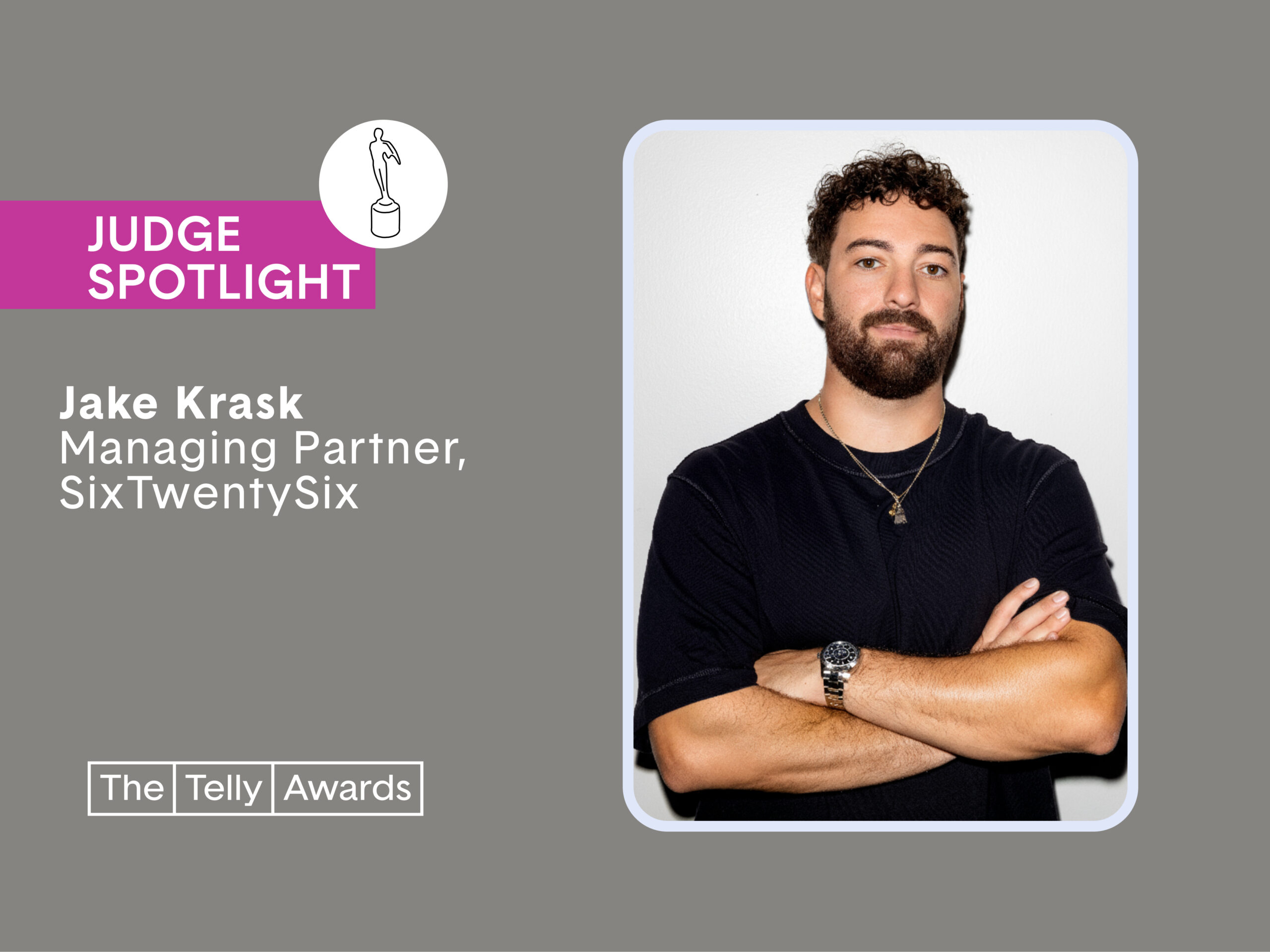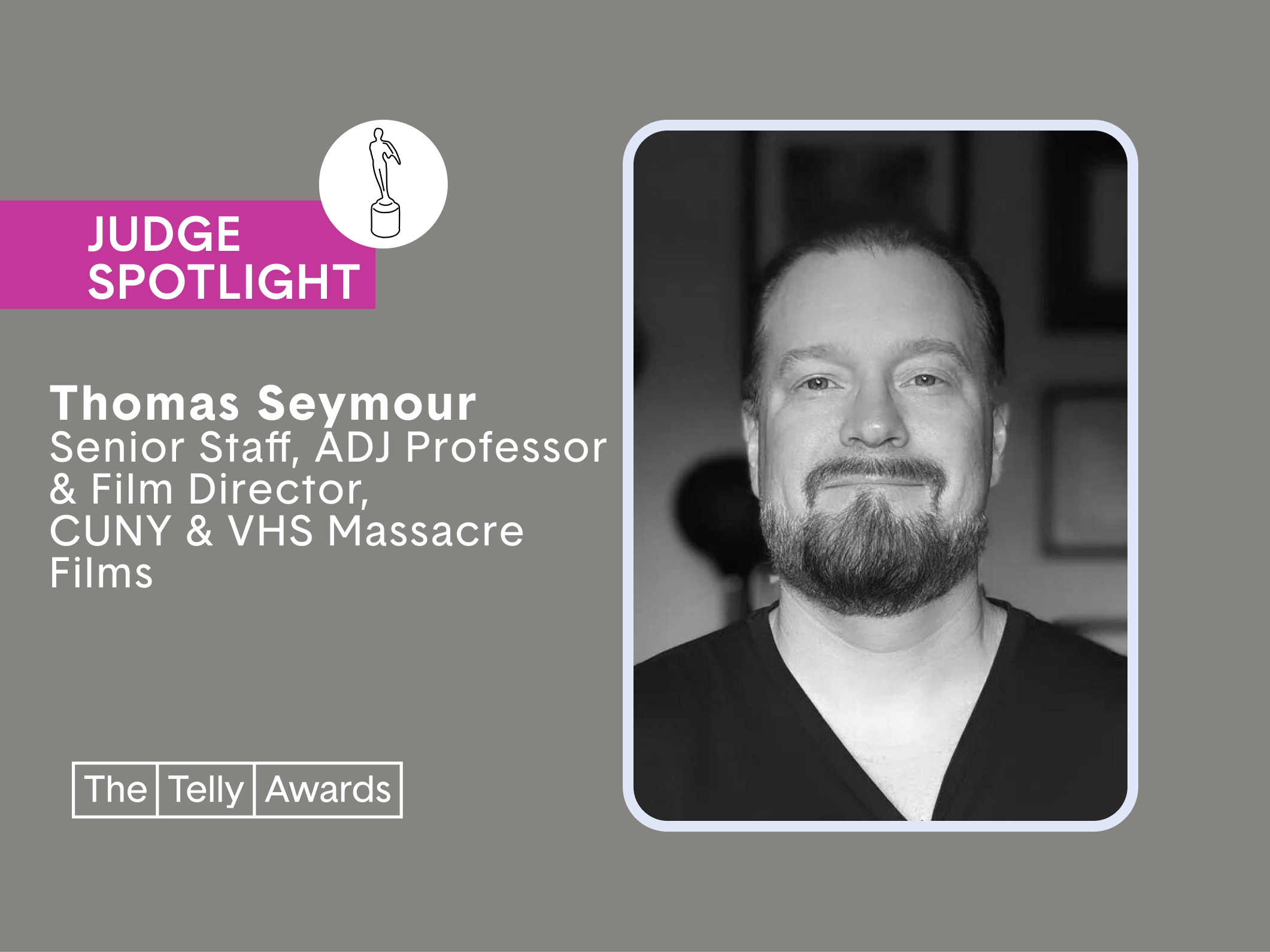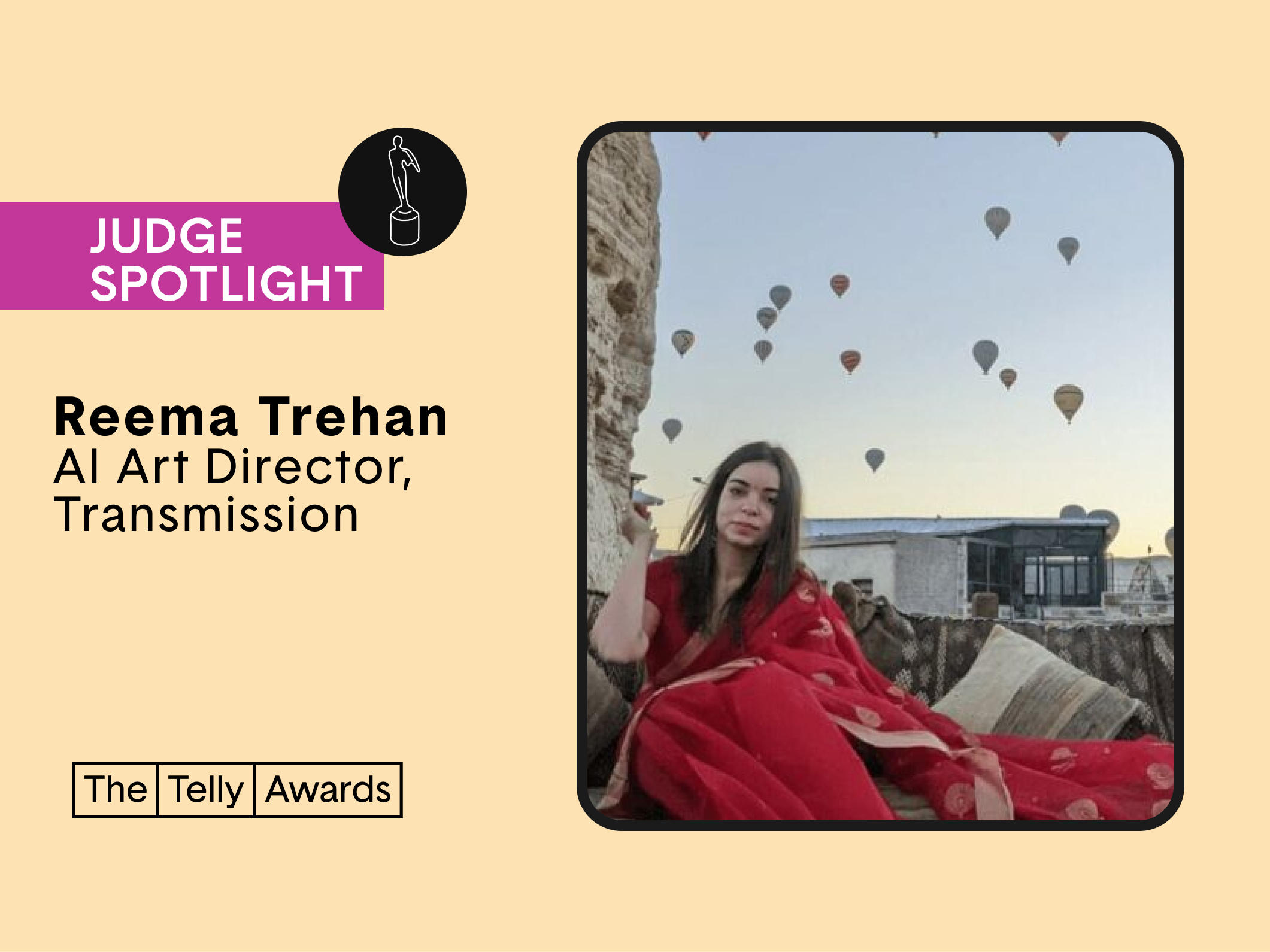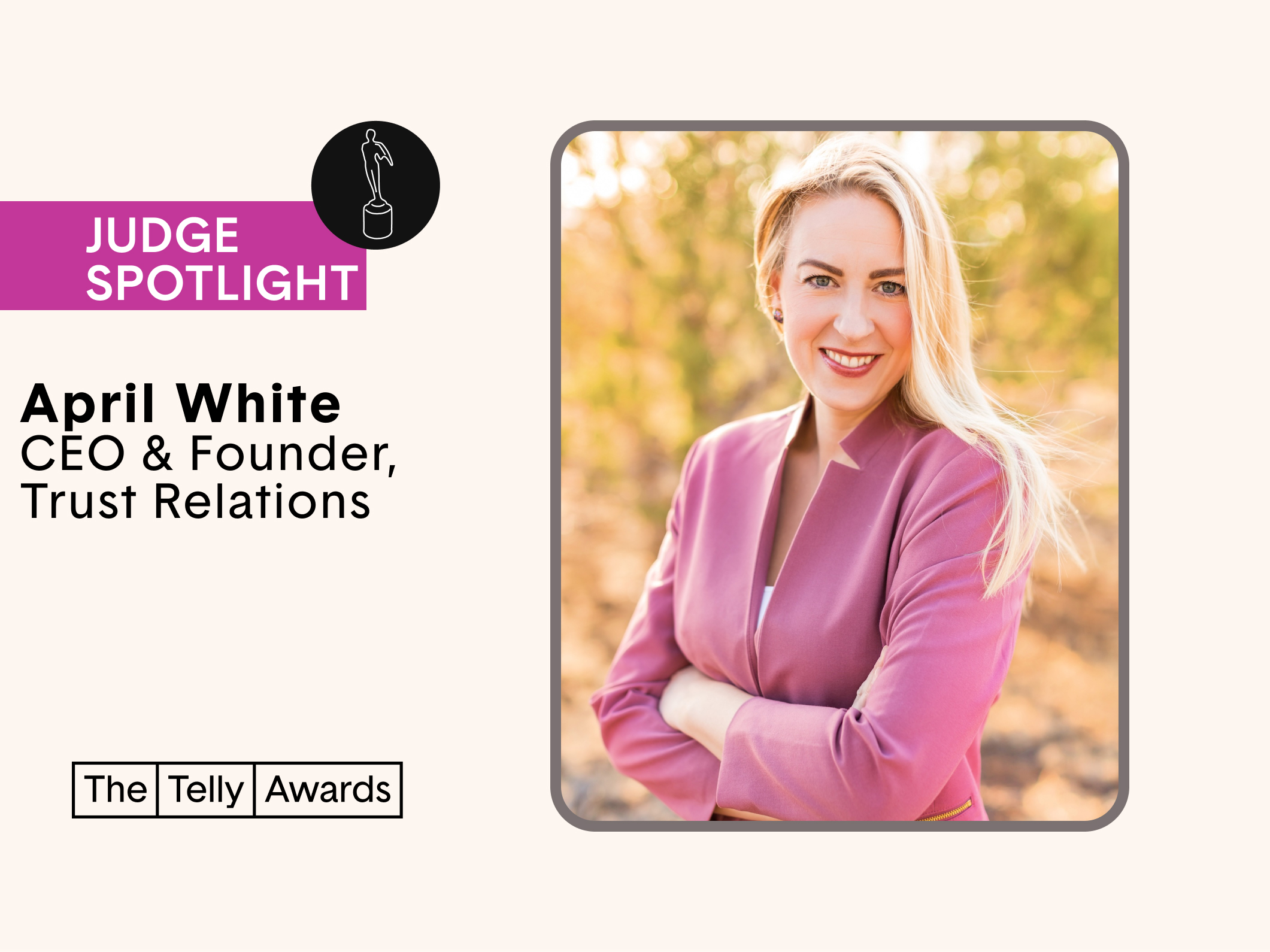Jake Krask is the Co-Founder and Managing Partner of SixTwentySix, a culture-forward production studio shaping the future of content. A Los Angeles native with deep entertainment roots, Jake leads the business side of the company—overseeing marketing, finance, and operations—while empowering top creative talent to thrive. Since launching SixTwentySix, he’s helped scale it into a multi-million-dollar studio known for standout work with brands like Samsung, Dropbox, and Coca-Cola, as well as award-winning music videos for Doja Cat, Megan Thee Stallion, and Billie Eilish. In 2025, Jake was named to Forbes 30 Under 30 in Advertising & Marketing.
How many years have you been a judge?
This is my first year!
What excited you about judging for the Telly Awards?
I started this business to be making content for today’s generation by today’s generation. This is exciting because judging is a chance to step outside my own world, get inspired, and recognize the people raising the bar in the industry today.
What was your first job in the industry? What did it teach you?
Production Assistant. I learned I didn’t like being at the bottom of the totem pole (lol) and wanted to make strategic decisions that would impact the creative.
What project are you most proud to have worked on?
I’d say the Liquid I.V. campaign is my favorite. Back when I was still in college starting this company, the founder of Liquid I.V. was just starting to blow up—and we went to the same school. I told myself then that one day I’d make a commercial for them. Years later, we finally made it happen. That full-circle moment meant a lot.
What’s the most challenging part about your job and/or the industry?
Figuring out how to continue to scale and grow this business as average budgets are decreasing while creative expectations are staying the same or increasing, and labor and equipment costs are also increasing which makes it harder to make a decent margin on projects to be able to invest into our people and continue to grow our business.
What do you look for to determine excellence in video?
I look for clarity of vision, craft in execution, and emotional impact. Great work doesn’t need a massive budget, it needs intentionality. Whether it’s a branded spot, a music video, or a short film, I want to feel like every creative decision was made on purpose and in service of the story or idea. If it makes me feel something and respect the craft, that’s excellence.
What are your current roles and responsibilities and what do you love most about your job?
I love being able to build a company that cultivates a culture that inspires people to do their best work and creates opportunities for them to continue to grow, challenge their skill set, and advance in their career.
What initiatives or projects are you working on now that excite you?
We have a few commercials that we cannot publicly discuss, but in general, most projects excite me when I’m able to see a brief and then watch our directors insert their POV to take it to another level that I might not have seen possible, and really elevate the creative.
What inspired you to pursue your career path?
I wanted to make a lasting impact in entertainment where today’s generation could watch content they actually relate to.
In your experience, what is a significant change you are seeing happen in the video, television, and/or film industry, and what insight can you share about how to navigate it?
I think AI video is going to fundamentally change our industry. At a macro level, we need to learn how to work with it—because it’s a powerful tool that can actually help creatives focus on making the best content for the job, not just what fits within the budget. Long-term, I find it hard to believe it won’t replace live-action in a meaningful way. From a business standpoint, it’s tough to justify spending hundreds of thousands for a one-shot production when AI lets you iterate endlessly for a fraction of the cost. The question is just how good AI content will get before you cannot tell the difference.





